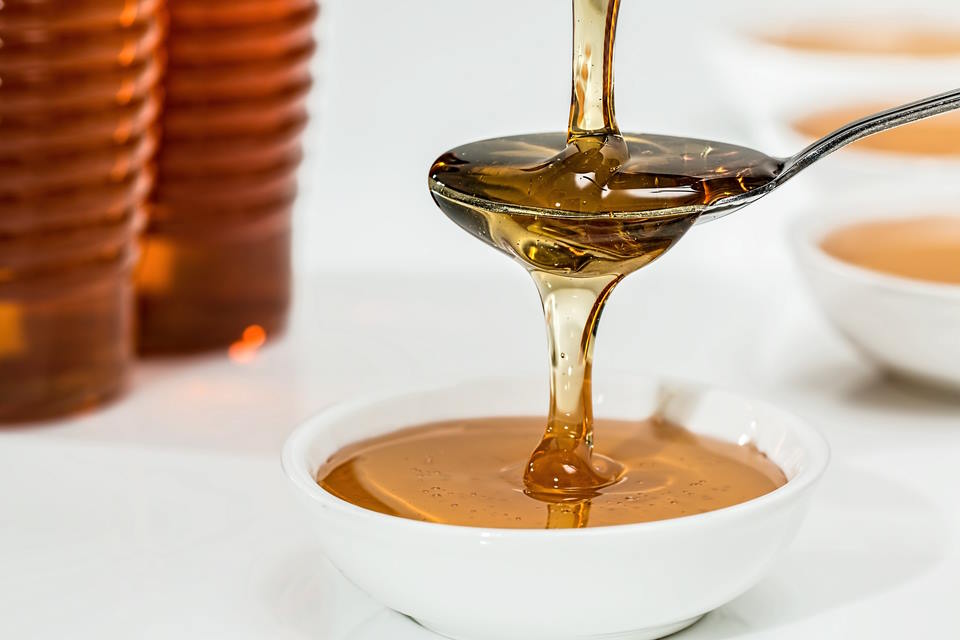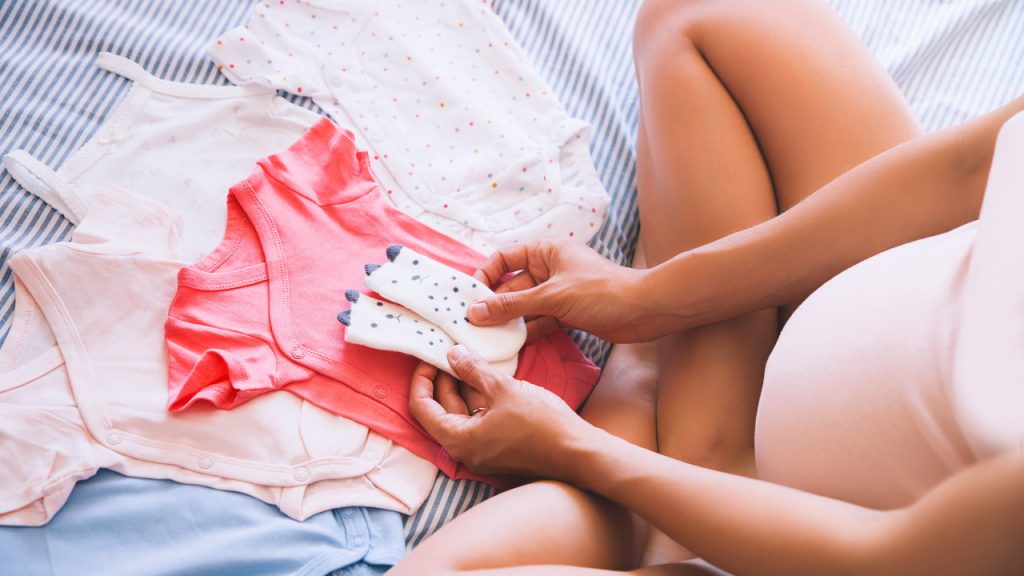Which Sweetener Is Best for Babies?
As a parent, you always want the best for your baby. This includes their diet and the types of sweeteners you use in their food. With so many options available, it can be difficult to decide which one is best. In this blog post, we will examine some of the most popular sweeteners and determine which ones are suitable for babies.
First on the list is honey. While it is a natural sweetener, it is recommended that babies under one year old do not consume honey. This is because honey can contain spores of a bacterium called Clostridium botulinum, which can germinate in a baby’s immature digestive system and cause infant botulism, a rare but serious illness.
Another common sweetener is maple syrup. Maple syrup is generally safe for babies to consume, but it should be used in moderation. It is also important to note that while it is a natural sweetener, it is still a form of added sugar and should not be the main source of sweetness in your baby’s diet.
Agave nectar is often touted as a healthier alternative to sugar. However, it is not recommended for babies. Like maple syrup, it is a form of added sugar and can lead to tooth decay and obesity if consumed in excess.
| Sweetener | Suitable for Babies? |
| Honey | No (until age 1) |
| Maple Syrup | Yes (in moderation) |
| Agave Nectar | No |
Other forms of added sugar, such as white sugar and corn syrup, should be avoided in babies’ diets. These types of sweeteners can lead to health problems later in life if consumed in excess, such as obesity and diabetes.
It is important to note that babies do not need any added sugar in their diet. In fact, it is best to introduce them to a variety of healthy, whole foods and limit their exposure to sugary foods and drinks. When it comes to sweeteners, natural options like mashed fruit, unsweetened applesauce, and fruit juice concentrate can be used in moderation.
Can Babies Have Maple Syrup?
Parents are always concerned about what their babies can and cannot eat. As such, it is not uncommon for parents to wonder if their babies can have maple syrup. After all, maple syrup is a commonly used sweetener in breakfast foods, such as pancakes and waffles. So, can babies have maple syrup?
The answer is yes, babies can have maple syrup. However, it is important to note that maple syrup should not be given to babies who are under one year old. This is because babies under one are not fully developed to handle the sugars present in maple syrup. In particular, the high concentration of sucrose and fructose in maple syrup can be difficult for young babies to metabolize.
Given that maple syrup is not recommended for babies under one, it is important for parents to opt for alternative sweeteners when making breakfast foods for their young ones. Some of the best options include breast milk, fruit purées, and organic honey. It’s also important to note that babies should not be given pancakes or any other breakfast food that contains maple syrup or sugar until they are eight months old.
| Pros of giving maple syrup to babies | Cons of giving maple syrup to babies |
|
|
How Safe Is Maple Syrup for Babies?
Maple syrup is a natural sweetener extracted from the sap of maple trees. Parents often wonder if it is safe to introduce maple syrup to their babies. While maple syrup is a healthy sweetener, it is important to moderate its use and adhere to safe consumption practices.
Firstly, it is important to note that babies under the age of one should not consume added sugars. Maple syrup contains high levels of natural sugars which can be harmful to a baby’s developing digestive system. It is recommended to introduce solid foods to a baby at around six months of age, and to limit their diet to breast milk or formula only before that age.
In addition, it is important to ensure that the maple syrup is of high quality and purity. Be cautious of brands that offer cheap or imitation products, as they may contain harmful additives or synthetic sweeteners. Always choose a reputable brand that is certified organic, and avoid products that contain corn syrup or other artificial sweeteners.
Another factor to consider is the way in which the maple syrup is consumed. When introducing maple syrup to a baby’s diet, it is important to use it sparingly and in moderation. Avoid serving pancakes or other foods that are high in added sugars, as this can lead to sugar cravings and unhealthy eating habits in the future. Instead, use maple syrup as an occasional treat, and pair it with wholesome and nutrient-rich foods such as fruits and yogurt.
Is Maple Syrup Safe for 1 Year Old?
Maple syrup has a distinct taste and is used in several households as a sweetener. It is commonly used as a healthier alternative to sugar in the diet of adults. But when it comes to babies, parents often wonder if maple syrup is a safe choice. In particular, is it safe to give maple syrup to a 1-year-old? Let us find out.
The American Academy of Pediatrics recommends avoiding the consumption of any kind of sweetener in the first year of a child’s life, including maple syrup. A 1-year-old’s diet should primarily consist of milk, either breast milk or formula, and solid foods. Although parents can introduce some sweet food items such as fruits, avoiding any kind of added sweetener is ideal.
If you do want to use maple syrup as a sweetener, you should wait until at least 2 years of age. At this age, you can give small amounts of maple syrup in pancakes, oatmeal, or plain yoghurt, as it will not cause any harm. However, it is important to note that excessive consumption of maple syrup by a child can lead to a spike in their blood sugar levels, even if it is a healthier alternative to processed sugar.
- Here are a few things that every parent should keep in mind while giving maple syrup to a 1-year-old:
- It is best to avoid maple syrup altogether in the first year.
- Avoid treats and beverages that contain maple syrup.
- If you are giving maple syrup to a child above 2 years, limit the serving size to 1-2 tablespoons.
Can Babies Have Maple Syrup and Honey?
As a new parent, you may be wondering what types of foods and sweeteners are safe for your baby. You want to make sure that your little one is getting all the nutrients they need, but also don’t want to expose them to anything that could be harmful. One question that often comes up is whether babies can have maple syrup and honey.
The short answer is no, babies under one year old should not consume maple syrup or honey. Both of these sweeteners have been linked to infant botulism, a serious illness that can cause paralysis and even death. The bacteria that causes botulism can be found in honey and can grow in maple syrup if it is not stored properly.
So, while maple syrup and honey may be natural sweeteners, they are not suitable for infants. It’s best to wait until your baby is over one year old before introducing these sweeteners into their diet.
- Instead of maple syrup or honey, consider using other natural sweeteners like mashed banana or unsweetened applesauce to add a touch of sweetness to baby’s food.
- Remember that breast milk and formula are the only recommended sources of nutrition for babies under six months old. After six months, you can begin to introduce solid foods, but be sure to talk to your pediatrician before doing so.
As your baby gets older, you can start to introduce a wider variety of foods and flavors, including maple syrup and honey. But until then, stick with safe and nutritious options that will keep your little one healthy and happy.
Can Babies Have Pancakes With Syrup?
Can babies have pancakes with syrup? This is a common question among new parents. Pancakes are a popular breakfast food and adding syrup makes them even more delicious. However, when it comes to feeding babies, there are many things that parents need to consider to ensure their baby’s safety and well-being.
Firstly, it is important to consider the ingredients in the pancake batter. Many store-bought pancake mixes contain high levels of sugar and preservatives, which are not suitable for babies. Instead, parents can make homemade pancakes using simple, healthy ingredients such as flour, eggs, milk, and a small amount of sugar.
When it comes to adding syrup, it is best to avoid using traditional maple syrup as babies under one year old should not have any sweeteners, including natural sweeteners like maple syrup. Instead, parents can use mashed fruit or unsweetened applesauce as a topping for pancakes. This will add a touch of sweetness without adding any unnecessary sugar.
- Mashed fruit
- Unsweetened applesauce
For babies over one year old, small amounts of pure maple syrup can be added to pancakes as a treat. However, it is important to note that even natural sweeteners should be consumed in moderation as they can contribute to tooth decay and other health issues.
Can 8 Month Old Have Pancakes and Syrup?
As a new parent, you might be wondering what foods are safe and appropriate for your little one to eat. One question that often arises is whether it’s okay for an 8-month-old baby to have pancakes and syrup. The answer is not a straightforward one, as there are several things to consider.
First and foremost, it’s important to make sure your baby has already been introduced to solid foods and can handle them. If they’ve only been breastfeeding or taking formula up until now, it’s best to wait a bit longer before introducing pancakes and syrup. As a general rule, babies are usually ready for solids between 4 and 6 months of age. So if your 8-month-old has been eating solid foods for a couple of months already, then pancakes and syrup might be okay.
When it comes to the actual pancakes, it’s best to make them from scratch rather than using store-bought mixes. This way, you can control the ingredients and make sure there are no harmful additives or preservatives. Aim for whole-grain pancakes and avoid adding any sweeteners or syrups to the batter.
As for the syrup, it’s generally recommended to avoid giving young babies honey due to the risk of botulism. But maple syrup is a safe alternative as long as it’s 100% pure and not mixed with any other ingredients. Keep in mind that maple syrup is still a form of sugar, so it should be given in moderation. A little drizzle is all that’s needed to add some flavor to the pancakes.
Overall, if your 8-month-old has been eating solid foods for a while and can handle them well, you can give them some homemade whole-grain pancakes with a small amount of 100% pure maple syrup. Just be sure to watch for any signs of an allergic reaction or digestive issues, and always consult with your pediatrician if you have concerns about your baby’s diet.
Is Honey or Maple Syrup Better for Toddlers?
Honey and maple syrup are two popular sweeteners used in many households. When it comes to feeding toddlers, parents are often confused about which one to choose.
Maple Syrup:
Maple syrup is a natural sweetener derived from the sap of maple trees. It is loaded with antioxidants and nutrients. Pure maple syrup does not contain any additives or preservatives, making it a healthier option than processed sugar or artificial sweeteners.
For toddlers, it is recommended to use pure maple syrup instead of maple-flavored syrup, which contains added sugars and artificial flavors. Maple syrup can be used in moderation to sweeten oatmeal, yogurt, pancakes, and other foods. However, it is important to remember that even natural sweeteners can cause tooth decay if consumed in excess.
Honey:
Honey is a natural sweetener produced by bees from the nectar of flowers. Like maple syrup, it is a healthier option than processed sugar. Honey contains antioxidants, enzymes, and antibacterial properties that can boost the immune system and aid in digestion.
However, honey should not be given to children under the age of one. This is because honey may contain spores of bacteria that can cause botulism, a serious disease that affects the nervous system. The digestive system of infants is not developed enough to fight off the bacteria, which can lead to paralysis and even death.











